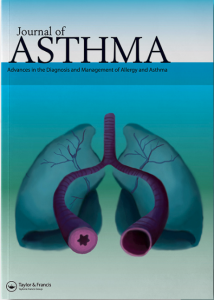
Mackle, R., Chan, M., Lay, M., Purcell, M., Campbell, N., Jaffe, A., … Homaira, N. (2024). Journal of Asthma, 1–10. https://doi.org/10.1080/02770903.2024.2408758
Abstract
Introduction
Personalized Asthma Action Plans (AAPs) are a cornerstone of pediatric asthma management. We aimed to assess parental knowledge and perceptions of the use of AAPs in managing their child’s asthma.
Methods
In 2023 we conducted a cross-sectional survey to assess knowledge and perceptions of AAPs in parents/caregivers of children aged 0–17 years with asthma who had an AAP and attended respiratory clinics at Sydney Children’s Hospital, Randwick. The questionnaire included parental perceptions on the utility of AAPs, parental asthma management self-efficacy (PAMSE), and an adapted version of the Asthma Action Plan Knowledge Interview tool (AAPKI). Descriptive statistics and regression analyses were used to assess associations between AAPKI, PAMSE and other outcomes.
Results

Seventy-one parents completed the survey. Mean PAMSE score was 4.2/5 (SD 0.5). Median AAPKI score was 70.2% out of 100% (IQR 20.4%). Most parents (80.0%, n = 56) were satisfied/very satisfied with using AAPs to manage their child’s asthma. Most agreed/strongly agreed that AAPs were helpful in knowing when to seek medical attention for their child’s asthma (81.7%, n = 58), helped their understanding of asthma severity (81.7%, n = 58), and increased their confidence in asthma management (76.0%, n = 54). Over half of parents (55.7%, n = 39) would prefer AAPs digitally and majority (78.6%, n = 55) would like color-coded AAPs.
Conclusion
High levels of AAP knowledge and self-efficacy scores were demonstrated. Most parents expressed understanding of the benefits of AAPs. Our findings suggest parents of children with asthma prefer AAPs in color and in digital version which may help guide standardization of AAPs across Australia.
